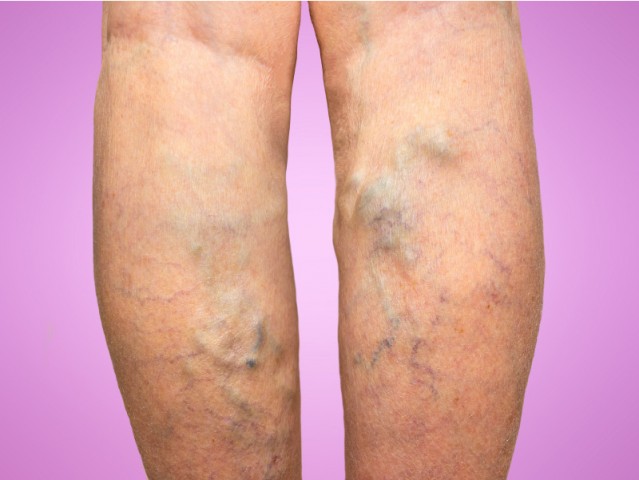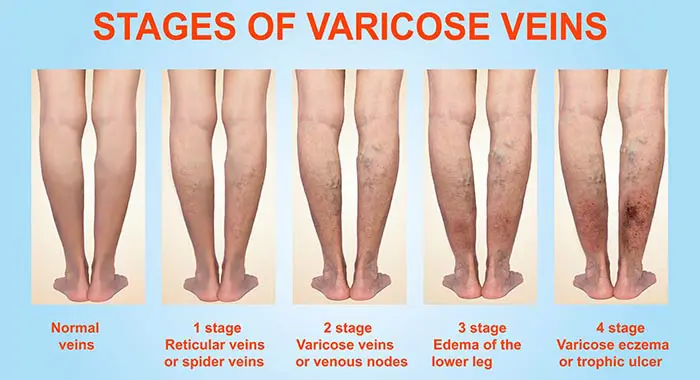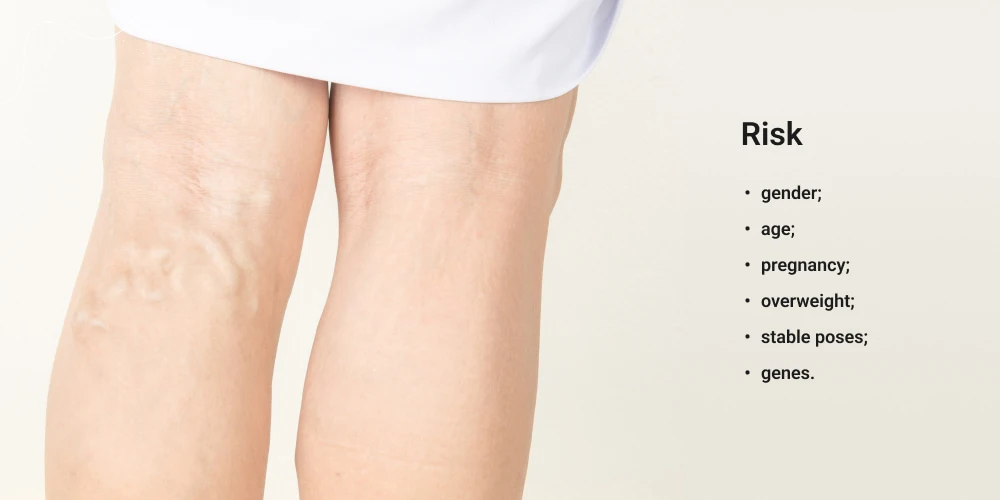108 Glen Osmond Road, Parkside

Varicose veins are bulging veins near the surface of the skin. Varicose veins are typically caused by venous insufficiency also called venous reflux. Veins are designed to pump blood back to the heart, and the veins in the legs have valves that help in this process. In patients with venous insufficiency, those valves aren’t working properly and cause a buildup of blood in the veins. This increased venous pressure leads to the development of varicose veins.

Some patients with varicose veins have no symptoms. For other patients, they may experience a number of symptoms including aching, throbbing, itching, heaviness and fatigue in the legs. Leg swelling is also a common symptom. Venous insufficiency is largely a benign condition (meaning it is not dangerous), but it can be quite frustrating as it starts to change the appearance of your legs and, in some cases, affect your ability to stand for long periods of time.
What problems do Varicose veins cause?
The pressure in the veins especially when standing can lead to pain, and swelling, and may sometimes lead to skin changes (brown staining, eczema, ulceration). Varicose veins sometimes develop a clot (thrombosis) causing the vein to become red, hard, and tender, known as “phlebitis” If injured varicose veins are prone to cause bruising or may occasionally bleed.
Varicose veins are attributed to weakened valves and veins in the affected area. Inside the veins are small one-way valves that allow blood to flow through, yet close to prevent backflow. Sometimes, these valves weaken due to overstretching or loss of elasticity, causing blood to leak and flow backward. This can lead to blood accumulation in the veins, causing them to be swollen and enlarged.

The exact cause for this malfunction in the veins is yet to be fully elucidated. Some people tend to develop varicose veins for no apparent or distinct reason. However, there seem to be certain risk factors that increase one’s likelihood of developing varicose veins. These risk factors include the following:

Gender: women are more likely to be affected than men, the reason for which is purported to be linked to female hormones.
Genetics: the risk of developing varicose veins seems to be hereditary
Age: aging can cause veins to lose elasticity
Weight: being overweight can cause extra pressure on the veins, prompting the valves to work harder, thereby making them prone to leaking
Occupation: people with occupations that require them to stand for a long period are at a higher risk of developing this condition
Pregnancy: pregnancy prompts the body to increase blood production to support the developing baby; this increased blood flow and hormonal changes make pregnant women prone to varicose veins (symptoms significantly improve after childbirth)
In some cases, the development of varicose veins can be attributed to other medical conditions such as a tumor in the pelvis, a previous blood clot or stroke, or abnormal behavior of blood vessels.
Ayurvedic view and Remedies for Varicose veins :-
In Ayurveda literature, the varicose vein has no separate elaborate identity as a disease but is considered as SiraVikriti (venous disorder) and named as Sirakautilya or Kutilsira. It can be correlated to Siragranthi (Granthi means protruded nodule-like structure and Sira means Vein) and is due to aggravated Vata dosha. According to Ayurveda, a sudden change from warmth to cold and vitiation of Vata and Pitta dosha and Raktadhatu (blood tissue) may cause ramification of veins. Description of Siragranthi in Ayurveda -“If a person undertakes excessive exercise, his network of veins get affected due to aggravation of Vata dosha, which in turn compresses, squeezes and dries up and produces granthi (protruded nodule-like structure), which is raised and circular”. The swollen, bulging, and twisted bluish veins that become visible just beneath the skin surface and filled up with abnormal gathering of blood are known as varicose veins which may be superficial (just below the skin surface, filled with capillaries) or deep (located deep beneath the muscle).
Ayurvedic Herbs and Herbal formulations used for Varicose Veins are:-
Ayurvedic herbs help to maintain a healthy lifestyle, reduce the pressure effects, relieve pain and inflammation, and maintain the normal tone of venous walls and their functions. These preparations are vata balancing, anti-inflammatory, diuretic, blood purifier, and wound healing which ultimately helps reduce the discomfort of varicose veins.
* Guggulu
* Neem
* Kanchanara
* Nagakesar
* Amalaki
* Bala
* Shatavari
* vidari
* Arjuna
* Mandukparni
* Daruharidra
* Ashwagandha
* Triphalaguggulu
* Punarnavadiguggulu
* Chandraprabhavati
* Manjishtadivati
* Arogyavardhinivati
Varicose veins are a problematic disorder of today’s life that doesn’t have a permanent treatment. But Ayurveda provides promising results by not only reducing the discomfort of venous insufficiency but also assisting in the healing of varicosity, and ulcers, helping in collagen formation which in return increases the tonicity of veins. Ayurveda herbs also improve the circulation of blood which is the basic cause of disease. Therefore Ayurveda is a treatment regime which can give promising results for varicose veins if one follows all the regimens strictly which are required for the disease.
Disclaimer : Sandeep Kumar and Anupam Vasudeva are not GP, they have Ayurveda medical degree from India where it is considered equal to any other medical degree. This qualification is recognized in Australia by vetassess governing body as Complementary Health Therapists. Life Line Ayurvedic Herbal Clinic does not claim to cure a disease or terminal illness and does not create any unreasonable expectation of beneficial treatment. Ayurvedic medicines and treatments are generally considered to be safe but rarely may be associated with possible adverse reactions in individual cases. We recommend seeking urgent medical attention in the case of an adverse reaction. This website provides you with information. You must contact your Ayurvedic or another health professional before you apply them. Read More